Revealing Writers Masks
Mardi Gras is coming! Laissez le bon temps rouler! (Let the good times roll!) Time to get out your krewe masks and your beads. Time to be more (or less) than normal. Find your identity. Be your own phantom. Discover yourself and don your best mask.
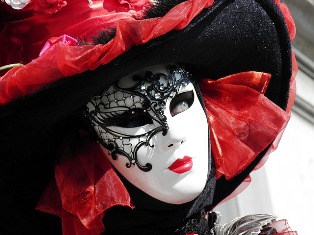 Much of who we are comes from how we humans design identities to our bodies. And beyond sexuality (a discussion for another day), much emphasis is placed on our various body parts but most of our identification comes from our faces. Our face is our “self.” Age and biological features such as “you look just like your Mom,” are often obvious ways we mark our identities. Other symbolic identities like our social identity and status require our face in order to express or alter our identities. How is this done? By adding or subtracting something like cosmetics, costumes, hairstyles or masks. Or a combination of all of those. Our masks therefore, are important.
Much of who we are comes from how we humans design identities to our bodies. And beyond sexuality (a discussion for another day), much emphasis is placed on our various body parts but most of our identification comes from our faces. Our face is our “self.” Age and biological features such as “you look just like your Mom,” are often obvious ways we mark our identities. Other symbolic identities like our social identity and status require our face in order to express or alter our identities. How is this done? By adding or subtracting something like cosmetics, costumes, hairstyles or masks. Or a combination of all of those. Our masks therefore, are important.
A mask completely or partially hides the face. Did you know that the word “person” comes from the Greek word meaning “mask,” or the role played by an actor in a performance?” So our faces reveal our social self, who we make ourselves in relation to the role we choose to play in society and in relation to other people around us. Our persona, or mask, is related to and is revealed in the personality, the self or the ego. Masks give us the ability to transform the “person” behind the image into someone or something else. This “else” makes our masks playful and powerful and can relate our new “else” to myth or ritual. Masks allow us to pretend. Or “become” new.
As an example, what child can put on a Halloween costume and not carry through the mask identity? A dragon must roar, a vampire must bite, and a fairy must wave a wand. For a moment in time, an hour, a night, a child has taken on the personal of the dragon who loves tacos, of the scary count vampire or the good witch from Oz.

Adults do no less. I have seen fully-grown women in a witches black gauze, cackle through the night and mature men in grey robes brandishing a staff yell, “you shall not pass!” I have watched teens suddenly become orcs and mothers of little tykes become Mothers of Dragons.
These new identities allow children and adults to become something beyond who they are or can ever be. Then how much more powerful is a mask when the transformation feels real?
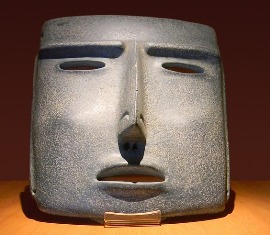
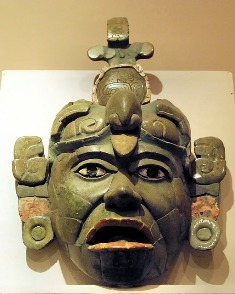
Great civilizations of the Old and New Worlds made and used masks daily. Death masks accompanied the Egyptian mummy to the tomb, and allowed the soul of the deceased to recognize its body after it returned to the tomb in the evening. The Aztecs and Maya of Middle America, and the Inca and other civilizations of the Andes used masks. The Chinese, Indians, and Japanese used masks from ancient times in a variety of different ways including theater, as did the Greeks and Romans. Finally, tribal and elder societies continue mask use in today’s rituals.
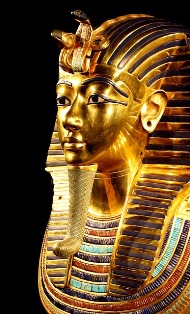 The early Christian Church took a dim view of masking and suppressed it whenever possible. This was partly due to masks’ association with pagan rites, and partly because of the immoral behavior that was often released through the anonymity afforded by the mask. However, the Church’s efforts at suppression were not entirely successful. In rural Europe, masking customs survived as Carnival and Mardi Gras; with the rise of the Commedia del’ Arte during the Renaissance, and the subsequent popularity of secular theater, masking firmly established itself in European traditions.
The early Christian Church took a dim view of masking and suppressed it whenever possible. This was partly due to masks’ association with pagan rites, and partly because of the immoral behavior that was often released through the anonymity afforded by the mask. However, the Church’s efforts at suppression were not entirely successful. In rural Europe, masking customs survived as Carnival and Mardi Gras; with the rise of the Commedia del’ Arte during the Renaissance, and the subsequent popularity of secular theater, masking firmly established itself in European traditions.
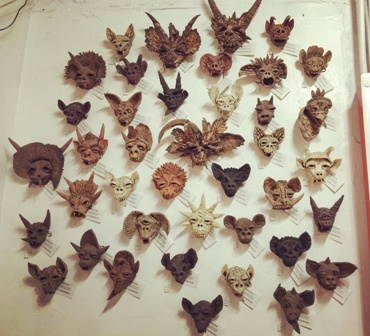 Arizona
Arizona
The Milwaukee Public Museum has more than 300 masks on exhibit, and at least twice that number in its stored collections. Every continent except Australia is represented, as well as every medium from leather to clay. The masks come in all sizes, all shapes, encompassing all levels of social and economic peoples from the Eskimo to the Japanese. They also “do” a great many different things, and this “doing,” or function, is further complicated because the same mask can do several different things at different times and for different activities.
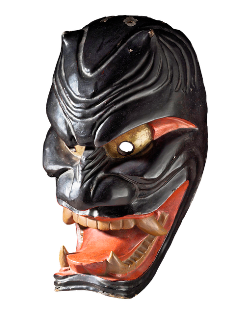
Historically, Greek drama, which was and is a masked performance, began as a masked ritual. Over time, the religious aspects of masked drama gave way to a more secular function of entertainment. In Indonesia, India, China, Japan and Europe, masked theater continues to be performed, either with religious or semi-religious overtones, while masked festivals are found throughout Europe, Central and South America and often coordinate with significant Church holidays.
One of the most important things that masks do is transform the identity of the wearer, and changing identity is not the same thing as transforming it. Take ceremonies in New Guinea, West and Central Africa, and North America where masks are used in “rites of passage.”
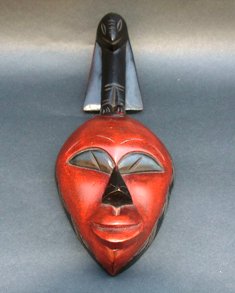
These rituals mark important transitions in the life cycle of individuals, or classes of individuals, in a society. Initiation into adulthood or a secret society, marriage, movement to a higher social rank, and funeral ceremonies are events that are often marked by masked performance. Death and rebirth are common themes in rites of passage, and masks help the visualization. In a rite of passage, an earlier identity ceases to exist, and is symbolically replaced with a new and entirely different identity. This is also a permanent change via the mask.
Masks encourage us to transform ourselves, and empower us to do so. They permit us to replace one reality with another. They can ultimately provide us with a better understanding of who we really are behind the role/masks we put on every morning and take off every night in our dreams.
For writers, masks are important. We use them to create. We “mask up” and become our characters, we redefine life, worlds, morals, and refine personalities and behaviors. Masks allow us to write fabulous stories or tell truths (or both). Masks can help us be real or help us be fantastically bizarre.
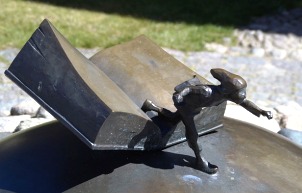
Understanding the role your persona takes in real life determines your author ability to make the masks work for you and your characters.
Mardi Gras is Feb 13, so I’m a bit early. But that week I want to talk about more loving pursuits, so forgive my early examination. Hey, all good right? You have time to find your mask. The key is to remember masks can transform and empower in real life and in your stories. The trick is making yours masks so good that no one can tell truth from fiction.
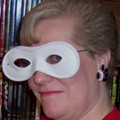
Inside or out, your mask matters. Reveal with pride.
I remain, Yours Between the Lines,
Sherry
(Completely unmasked. Honest.)














